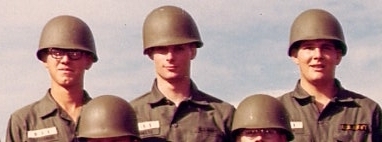The human costs of war outweigh all others. The death of three Minnesota soldiers in Iraq this week brought that home forcefully to us.
Even with sophisticated equipment, soldiers still die. Their deaths are a painful loss to their families and communities. Whether what we are accomplishing in Iraq is worth the 1,500 or so dead and several thousand wounded is not clear. As with many past wars, only future historians will have the perspective to weigh personal sacrifice against national benefit. Even they might not agree in their conclusions.
The human pain caused by war casualties is not directly monetary in nature, but it does diminish the well-being of society. And the loss of young people, of course, diminishes the productive capacity of a nation. National leaders must take the possibility of such suffering seriously when they make choices about what actions are necessary for the defense of our society. Indeed, such choices are among the hardest that leaders ever face.
While the pain and loss suffered by the families of those who die has not changed over the years, their relationship to the rest of society has. More than 14 million people served in the U.S. armed forces in World War II — about one in 10 for the population as a whole. Today, those in uniformed service represent about one in 200.
For all of the principal combatant nations in World War I, deaths alone represented about 3 percent of their total populations. Adding in the wounded brought the proportion of casualties above 10 percent of the populations as a whole. For the cohorts of young men born between 1892 and 1900 in Germany, France, the United Kingdom, Russia and Austria, the proportion killed or wounded reached as high as 70 percent.
In comparison to that mass slaughter, our losses in Iraq and even in Vietnam were small. That does not ease the pain of families and communities who suffered losses, but it is something for which society as a whole should be thankful.
The smallness of the number of affected families is incongruous, however. In the U.S. Civil War or in the two World Wars of the past century, bereavement was a common, widely shared experience. Many families experienced it and many more feared it. Now the pain is felt by only a few. Meanwhile, the rest of us experience no difference in our daily lives even though we are “at war.”

I have a photo on my computer. Taken at Ft. Lewis, Wash., in October 1967, it shows three young men from basic training. Bob, the one on the right, would be dead in Vietnam less than six months after the photo was taken. Dave, in the middle, would be severely wounded at about the same time and would spend months in surgery and rehabilitation. I’m the pimply geek on the left. While I ended my three-year enlistment with a tour in Vietnam two years later, I would serve as a clerk and never get a scratch.
Many veterans understand the questions that never completely go away. Why did Bob die and why was Dave wounded, and why did I come out so well? Moreover, why did we serve when so many of our schoolmates did not?
There is no satisfactory answer to such inner questions. Fate — or providence — is not knowable. Some outcomes seem random.
Some economists argue that as long as the chance of some adverse event is randomly distributed, the fact that some pay a cost while others do not is not inherently unfair. That is why the lottery for the draft was deemed more just than the previous system of often arbitrary exemptions and reclassifications.
Whether randomly distributed suffering is fair or not, in a society as rich as ours, those who suffer great loss should receive generous compensation. Money cannot replace a life or a limb, but it can ease the future daily life of those affected.
It is important, however, to recognize that deaths in war are not necessarily more painful than other tragic, noncombat deaths. I once worked with a woman who had lost two children, first a 17-year-old girl in a car accident and then some years later a 19-year-old son in Vietnam. “You cannot say that one is worse than the other,” she told me. “They both hurt so bad that at first you don’t know how you will survive.”
All deaths involve loss, and the deaths of young people in the prime of their lives is always tragic. Combat deaths in Iraq have affected thousands of families, but during the same period, tens of thousands of other families have been torn by untimely accidents and disease. Their pain — and the nation’s loss — is not any less.
The weight of responsibility on military commanders and national leaders is enormous. German Chancellor Otto von Bismarck once said, “All of the Balkans are not worth the bones of one Pomeranian grenadier.” But some 3 million young Germans eventually died in a war ignited by the “damn-fool thing in the Balkans” that Bismarck had feared.
Did responsibility weigh heavily on the leaders who rushed Europe headlong to war in 1914? It obviously did for Abraham Lincoln, Franklin Roosevelt and Lyndon Johnson. Yet all were willing, perhaps wrongly, to continue to send more men to their deaths. We might disagree with our leaders’ decisions, but we should not envy their responsibilities.
© 2005 Edward Lotterman
Chanarambie Consulting, Inc.
